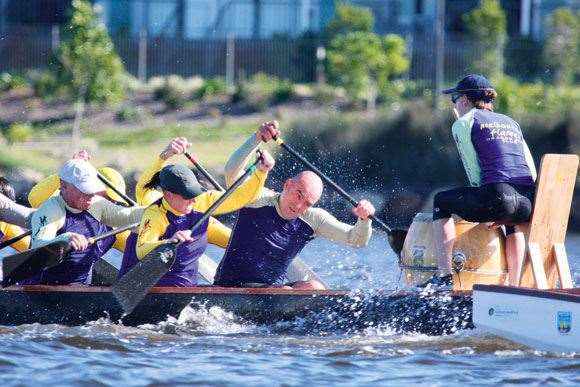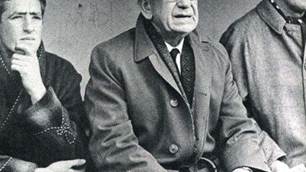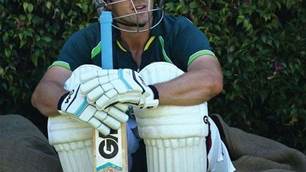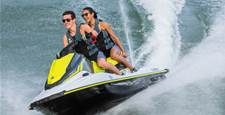Australia is fast getting into the spirit and culture of dragon boat racing – a mere 2000 years after its birth in ancient China.
Australia is fast getting into the spirit and culture of dragon boat racing – a mere 2000 years after its birth in ancient China.
 The Flames power home to the beat of the drummer and screams of the sweep. Images: Karin Schermbrucker / SPORTZPICS
The Flames power home to the beat of the drummer and screams of the sweep. Images: Karin Schermbrucker / SPORTZPICSJill is hit by a car the night before the national titles. She’s one of our “strokers” in the Melbourne Flames dragon boat team and had been training her heart out, excited at the prospect of competing against the strong Brisbane and Sydney crews. Her broken collarbone means she’s going nowhere.Her accident sounds the death knell for our club competing in the National Dragon Boat Championships at Lake Kawana on Queensland’s Sunshine Coast; we’d had another team-member pull out several days prior to us travelling north. How can we compete with two less people when we’re struggling to field just two teams?
The Melbourne Flames, however, don’t understand the concept of giving up. We’ve been ferociously training for the past five months on the water and in the gym (an old warehouse overrun by rats) and nothing is going to stand in our way.Dragon boating, one of Australia’s fastest growing group sports, has a rich cultural history dating back 2000 years to southern China. It’s how the ancient Chinese celebrated their annual water rituals and festivals while honouring their tradition of paying respect to the Asian dragon water gods who were thought to control rain and rule the water. It’s believed sacrifices – sometimes human – were involved in the earliest boat racing rituals. There were often violent clashes between crews of competing boats (they’d throw stones and hit each other with bamboo sticks). Any paddlers who fell into the water couldn’t receive help from onlookers as their misfortune was considered the will of the dragon god which wasn’t to be interfered with.
Up to 20 paddlers sit side by side in a long boat (about 14 metres) with a drummer – or the boat’s “heartbeat” – at the front and a sweep at the back. The drummer thumps on a large drum in time with the first paddler (the “stroke”), dictating the boat’s pace to the rest of the team.The sweep instructs the team and uses a large oar to keep the craft on a straight course. Teamwork is crucial. All must stroke as one in perfect synchronicity otherwise the boat won’t “run” or move ahead smoothly. When paddling together, you feel you can stroke forever; it’s effortless and seems you’re in synch with the universe. When you’re out of time, you feel as uncoordinated as a three-legged dog.So what drives more than 60 people from diverse backgrounds to train in the cold, the rain and often at night in a marginal sport with little hope of success? (Well, the latter’s not entirely accurate. Last year at the Nationals the Flames claimed the silver medal in the 1000m Masters race and bronze in the 500m Mixed event. It seems the tougher it gets for the Flames, the better we like it.)
I’m one of 60 hard-core paddlers who’ve learnt what it is to “leave everything on the water” and relish the close-knit community one becomes part of. Not surprisingly there’ve been several intra-club marriages, births and deaths.“Aggressive catch”, “power” and “one, two, three – up” were phrases I’d never heard until I joined the team last November. Our coach is a former Olympic Russian paddler called “Serge”. I learnt the intricacies of “Russian fun” involving extensive and exhausting sessions towing a milk crate out the back of the boat, long circuits paddling around bobbing buoys and training so long and hard your arms and shoulders feel like they’ll fall off.Serge enforced a strict training regime leading up to the Nationals. His motto, “just go harder”, became ours. As a former competitive swimmer and boxer, I’d never trained so hard. Our gym sessions involved equipment made from pieces of wood, iron bars, a hammer and weights. Serge served in the Russian Army and, after completing his punishing training sessions, I reckon I know what that was like.
 Image: Karin Schermbrucker / SPORTZPICS
Image: Karin Schermbrucker / SPORTZPICS“Throwing the towel in” at the nationals isn’t an option for the Flames – we’ll simply paddle with less people. It’s legal for us to have 18 in the boat and, after conquering so many challenges, we’ll use this fierce determination to get us there.For four days over 1500 competitors representing more than 40 Australian clubs engage in the “Battle of the Dragons”. I’ve never seen so many different body shapes and sizes squeezed into such a variety of lycra outfits. I see a “Goth” dragon-boater complete with kilt and black nail polish, and every second person seems to have a dragon tattoo on their back or down their arms. One bloke even has a dragon tattoo across the back of his skull.
On the first day of competition we’re in a Victorian side. It seems team spirit is peaking as three of our paddlers shave the backs of their heads into a “V” and pose for photographs. Both our Premiers and Masters teams reach the semi-finals, but don’t get any further.On day three, competing as the Flames, we line up for a gruelling 2000m race paddling four laps of the course non-stop as fast as we can go. It’s a time trial, so at every five minute interval another boat starts. The fastest race time wins. We paddle up to the start line.
Beside us the Brisbane River Dragons side looks like the cast from Once Were Warriors. There’s a nervous wait. “Attention!” the starter yells. I stretch forward, holding my paddle still, ready to accelerate. “Go!” Everything is a blur and I’m hit by water from the paddler in front of me. We do six of the strongest strokes we can in time. The boat surges forward. “Up!” yells our sweep and we automatically do 20 fast strokes without losing speed or momentum. The boat slices through the spray. “Power!” We elongate our stroke, settling into a rhythm, splicing through the water and moving in time like a big water creature with two heads and 36 arms.
Suddenly the boat ahead of us looms large. I ignore my aching limbs and push forward. Our sweep screams encouragement. Our boat noses past them. There’s nothing more satisfying than paddling past your competition. We swing around the buoy, our sweep pulling hard on the oar. Our boat cuts a swathe through the water and we level
with another rival before passing it in several strong strokes. The boat running smoothly, we spear our way towards the finish line. A boat ahead of us is struggling to get over the line, but just beats us home. A buzzer sounds, announcing we’re over the line. We clap each other on the back. I’m exhausted and exhilarated.We finish tenth with only 18 paddlers in our boat. But I was wrong; there is something more satisfying than paddling past your competition – it’s giving it your best and leaving “everything on the water”. The Melbourne Flames – against all the odds – did just that.The Flames finished sixth in the national 200m Premier Mixed event.
– Rochelle Jackson
Related Articles

Whatever floats your dragon boat

Before Barassi, there was Frank "Checker" Hughes













